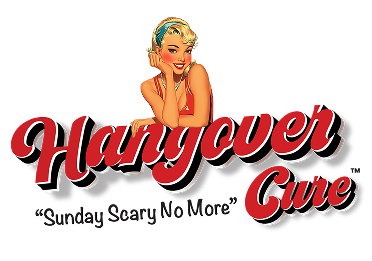
Why Does It Take So Long for a Person to Sober Up After Binge Drinking?
Share
Binge drinking can lead to a long and uncomfortable recovery process, leaving many people wondering why it takes so long to sober up. The truth is, alcohol metabolism is a slow and complex process governed by biological mechanisms that cannot be sped up by quick-fix remedies. In this blog, we’ll explore why the body takes time to eliminate alcohol, debunk common sobering myths, and offer science-backed strategies to support recovery.
Understanding How Alcohol Is Processed in the Body
The Liver’s Role in Alcohol Metabolism
Once alcohol enters your bloodstream, the liver takes on the responsibility of breaking it down. The primary enzymes involved in this process are:
- Alcohol Dehydrogenase (ADH): Converts alcohol into acetaldehyde, a toxic substance.
- Aldehyde Dehydrogenase (ALDH): Further breaks down acetaldehyde into acetic acid, which is eventually eliminated from the body.
Since the liver can only process alcohol at a fixed rate (about 0.015% of blood alcohol concentration (BAC) per hour), drinking excessive amounts overwhelms this system, leading to prolonged intoxication.
How Blood Alcohol Concentration (BAC) Affects Sobering Up
BAC is a measure of how much alcohol is in your bloodstream. The higher your BAC, the longer it takes for your body to metabolize and eliminate alcohol. For example:
- A BAC of 0.08% (legal intoxication limit) can take around 5-6 hours to fully clear from the system.
- A BAC of 0.20% or higher from binge drinking may take 12 hours or more to metabolize.
Why the Body Can Only Process Alcohol at a Fixed Rate
The rate at which alcohol is metabolized depends on:
- Genetics: Some people have more efficient enzymes than others.
- Body weight and composition: Larger individuals may process alcohol slightly faster.
- Liver health: A healthy liver metabolizes alcohol more effectively than a damaged one.
- Hydration and nutrition levels: Dehydration and malnourishment can slow alcohol elimination.
Common Misconceptions About Sobering Up
Does Coffee Speed Up Alcohol Metabolism?
No. While coffee may make you feel more alert, it does not accelerate alcohol metabolism. Your BAC remains unchanged.
Can Cold Showers or Exercise Help Sober Up Faster?
Cold showers or intense exercise may temporarily make you feel refreshed, but they do not remove alcohol from your system any faster. Alcohol elimination happens in the liver, not through sweat.
Does Drinking Water Flush Out Alcohol?
Hydration can alleviate some dehydration-related hangover symptoms, but it does not speed up the breakdown of alcohol in your system.
The Effects of Binge Drinking on the Sobering Process
Why High BAC Levels Take Longer to Clear
When you binge drink, alcohol enters your bloodstream faster than your liver can process it. This leads to extended intoxication and a longer sobering-up period.
How Dehydration Slows Down Recovery
Alcohol is a diuretic, meaning it causes increased urination and dehydration. This can lead to symptoms like headaches, dizziness, and fatigue, making the recovery process feel even longer.
The Impact on the Brain and Cognitive Function
Excessive drinking disrupts neurotransmitter activity in the brain, impairing judgment, coordination, and memory. These effects persist until alcohol is fully metabolized.
Science-Backed Strategies to Support Recovery
Hydrate with Electrolytes to Counteract Dehydration
Replenishing electrolytes like sodium, potassium, and magnesium helps restore hydration balance and ease symptoms of a hangover.
Eat Nutrient-Dense Foods to Support Liver Function
Foods rich in B vitamins, antioxidants, and amino acids (like eggs, avocados, and leafy greens) support the liver in breaking down alcohol.
Here's list of the foods that help your liver
Take Supplements That Aid Alcohol Detoxification
Some supplements, like milk thistle, N-acetylcysteine (NAC), and B-complex vitamins, help support liver function and mitigate alcohol-induced damage.
Get Proper Rest to Allow Your Body to Recover
Sleep is one of the most effective ways to allow the body to naturally eliminate alcohol and recover from its effects.

How Hangover Cure Helps Speed Up Recovery
Designed with Science-Backed Ingredients
Hangover Cure contains essential vitamins, minerals, and herbal extracts that support the body’s natural detoxification process.
Helps Replenish Essential Nutrients Lost from Alcohol
Binge drinking depletes key nutrients—Hangover Cure replenishes them to help you feel better faster.
Supports Hydration and Liver Detoxification
Formulated with electrolytes and liver-supporting compounds, Hangover Cure aids in hydration and liver recovery, making the sobering-up process smoother.
Frequently Asked Questions About Sobering Up
How long does it take to sober up from binge drinking?
It depends on your BAC, but on average, the body eliminates 0.015% BAC per hour. This means sobering up completely from a 0.15% BAC could take 10+ hours.
Can any supplements help the body process alcohol faster?
While no supplement can instantly remove alcohol from your system, Hangover Cure provides nutrients that support the liver and hydration process to ease symptoms.
What’s the fastest way to feel better after drinking?
Hydration, rest, electrolyte replenishment, and consuming nutrient-rich foods are the most effective ways to recover.
Conclusion
Sobering up after binge drinking takes time because the liver can only metabolize alcohol at a fixed rate. Common tricks like coffee, cold showers, and exercise don’t speed up this process. The best way to recover is by staying hydrated, replenishing nutrients, and getting proper rest.
For a science-backed recovery boost, try Hangover Cure—a specially formulated supplement designed to replenish lost nutrients, support liver function, and aid hydration.
🎉 Looking for a fast and effective way to bounce back after drinking? Shop Hangover Cure now!
